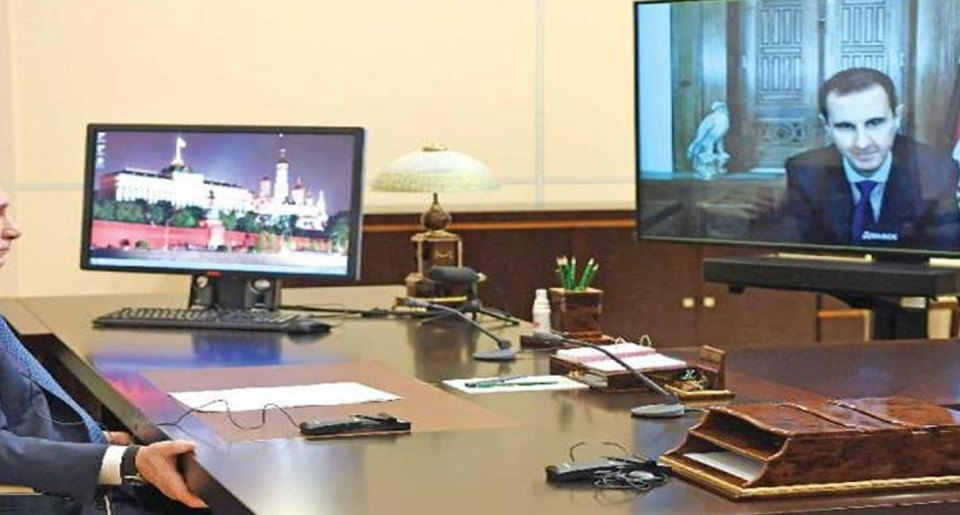A leaked secret message reveals that Assad called for Russian military intervention during the 2013 battles of eastern Ghouta, Sowt Al-Asime reports.
The Russian newspaper Zavtra wrote in an article it published on Saturday about a secret message that the head of the Syrian regime, Bashar al-Assad, sent to Russia amid the 2013 battles of eastern Ghouta.
The newspaper said that the message, which was received by Russia at 4:56 p.m. on Nov. 24, 2013, stated, “we have provided chemical weapons to the international community, and we are confident that Russia will present the necessary alternatives to confront the terrorist aggression on our homeland. However, presently, matters point to a possible sudden collapse within a few days, after we lost the five largest towns in Ghouta yesterday, with the militants reaching a distance of three kilometers from Damascus International Airport and cutting off the Damascus-Homs International Road after they occupied the city of Deir Atiyah. Our human resources and weapons are depleted. Therefore, there is a very urgent need for direct military intervention by Russia, otherwise, Syria and the civilians will fall into the hands of Islamic terrorists,” according to a translation by Russia Today.
Zavtra added that Moscow made the decision to intervene in Syria after it received Assad’s message, and it was necessary to open a channel of military communication with the US forces on the ground in Syria, noting that the formation of the Astana group resulted from that communication.
The disclosure of the aforementioned message came within an article published by the Russian newspaper under the title “Is Damascus Moving Towards Normalization with Israel?” This happened one day after Russian Foreign Minister, Sergey Lavrov, held a meeting with the UN Special Envoy on Syria, Geir Pedersen, during which the two sides touched upon the results of the 15th International Meeting on Syria within the framework of the Astana process, which was held in the Russian city of Sochi last week. They also discussed the work of the mini-constitutional committee, which held its fifth session in Geneva late last month.
The newspaper pointed out that Assad does not believe in the credibility of the international community or its role in providing adequate guarantees during the transformation processes, pointing out that the president fears facing a fate similar to that of the former Yugoslav president, Slobodan Milošević, who died in prison after he was deceived by the West, as the article put it.
 Eurasia Press & News
Eurasia Press & News




